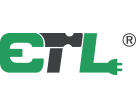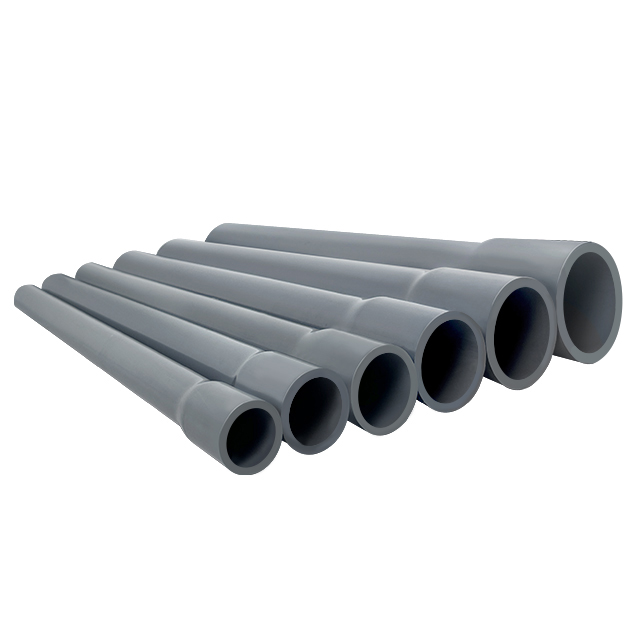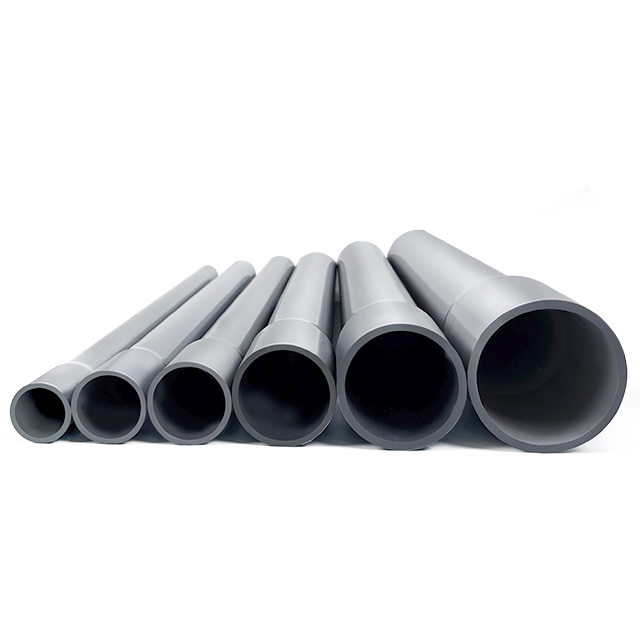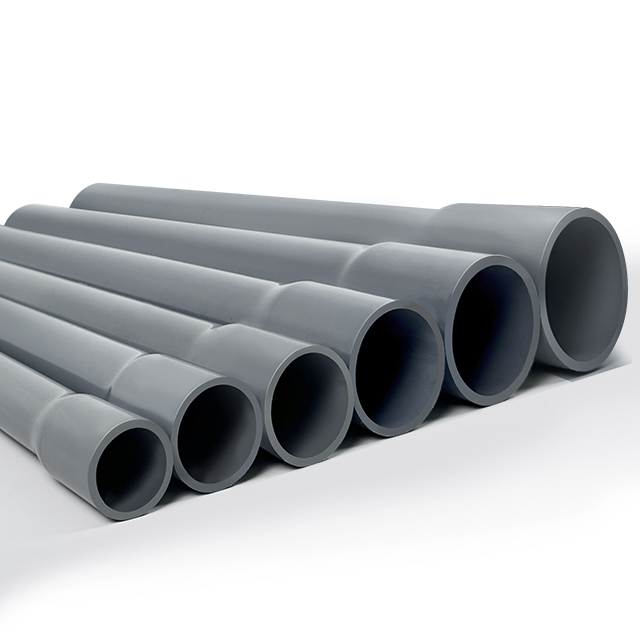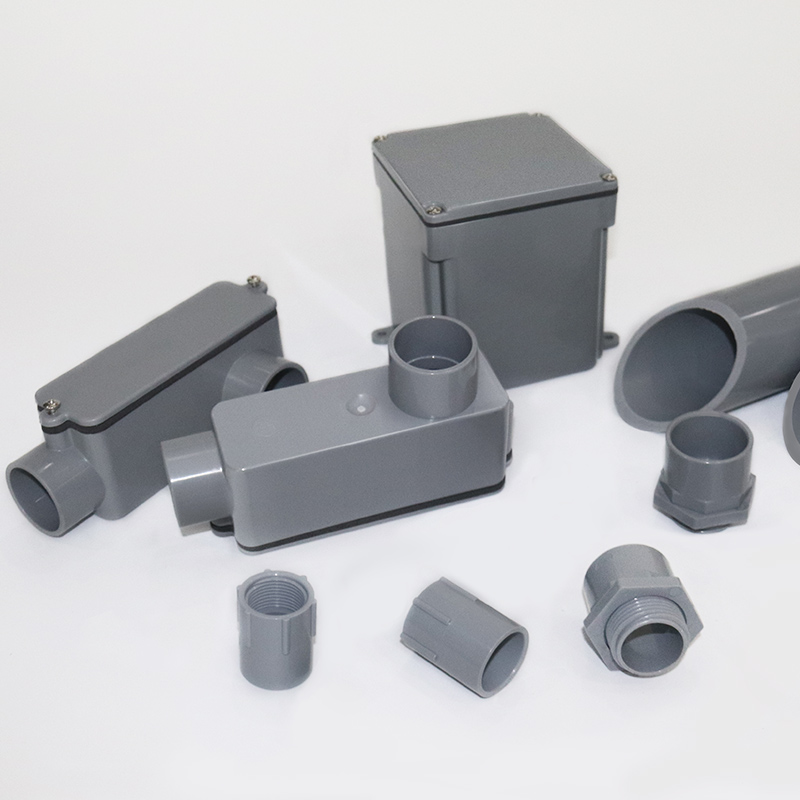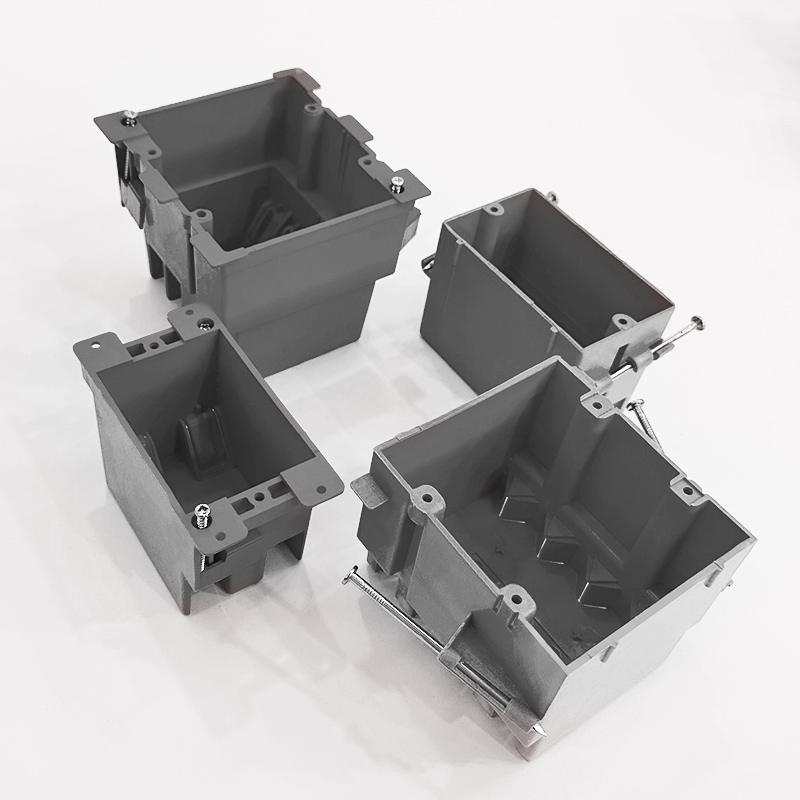When it comes to electrical installations, the choice of conduit plays a critical role in ensuring the safety and functionality of your wiring system. Two of the most common types of rigid PVC conduits are Sch 40 and Sch 80. Both meet UL651 and ETL standards for electrical applications, but they differ in key characteristics such as strength, thickness, and suitability for different environments. Here we list the differences between Sch 40 and Sch 80 PVC conduits, helping you choose the right option for your specific project needs.
What is Rigid PVC Conduit?
Rigid PVC (Polyvinyl Chloride) conduit is a durable, non-metallic pipe used for electrical wiring in residential, commercial, and industrial applications. Its primary function is to protect and route electrical wiring, ensuring that it remains secure and insulated from environmental factors like moisture, physical impact, and chemical exposure. Available in different schedules (Sch 40, Sch 80), rigid PVC conduit is designed to provide reliable and long-lasting protection for electrical systems.
Both Sch 40 and Sch 80 rigid PVC conduits are commonly used in a wide range of applications, including in-wall wiring, underground installations, and exposed systems. They are compliant with UL651 and ETL standards, ensuring that they meet strict safety and quality requirements. However, they have distinct properties that make them suitable for different project types.
ETL Schedule 40 80 Electrical UPVC Rigid Conduits
Sch 40 PVC Conduit: Ideal for Light-Duty Applications
Sch 40 PVC conduit is a lightweight, cost-effective solution designed for use in less demanding environments. It has a thinner wall than Sch 80 PVC conduit, making it easier to handle, cut, and install. Sch 40 is commonly used for:
● Residential Wiring: Ideal for indoor installations, including electrical circuits in homes, garages, and basements.
● Commercial Installations: Suitable for light-duty commercial wiring in non-hazardous environments.
● Above-Ground Applications: Sch 40 conduit is typically used above ground in dry areas where the conduit is not subject to heavy physical impact.
Key Features of Sch 40 PVC Conduit
● Wall Thickness: 0.125 to 0.140 inches (depending on diameter)
● Durability: Suitable for light-duty applications
● Flexibility: Easier to install, especially in tight spaces
● Cost-Effective: More affordable than Sch 80
Sch 80 PVC Conduit: Built for Heavy-Duty Protection
Sch 80 PVC conduit, on the other hand, is designed for more demanding environments where additional strength and protection are required. It has a thicker wall compared to Sch 40, providing enhanced durability and resistance to physical impact, pressure, and external elements. Sch 80 is commonly used for:
● Industrial Applications: Ideal for use in factories, manufacturing facilities, and warehouses where the conduit may be exposed to heavy machinery or impact.
● Underground Installations: Sch 80 conduit is recommended for underground wiring, offering superior protection against soil pressure and other environmental factors.
● Outdoor Environments: It is better suited for outdoor installations, especially in areas exposed to direct sunlight or extreme weather conditions.
Key Features of Sch 80 PVC Conduit
● Wall Thickness: 0.154 to 0.216 inches (depending on diameter)
● Durability: Designed for heavy-duty protection
● Impact Resistance: Superior resistance to physical damage
● Temperature Resistance: Handles a wider range of environmental conditions
Sch 40 vs. Sch 80: Key Differences
|
Feature |
Sch 40 PVC Conduit |
Sch 80 PVC Conduit |
|
Wall Thickness |
Thinner (0.125 to 0.140 inches) |
Thicker (0.154 to 0.216 inches) |
|
Durability |
Suitable for light-duty applications |
Ideal for heavy-duty environments |
|
Cost |
More affordable |
Higher cost due to increased durability |
|
Impact Resistance |
Lower resistance to impact |
Higher resistance to physical damage |
|
Flexibility |
More flexible, easier to install |
Less flexible, more rigid |
|
Applications |
Residential, commercial, above-ground |
Industrial, underground, outdoor |
|
Compliance |
UL651 and ETL standards |
UL651 and ETL standards |
ETL SCH40 SCH80 PVC Rigid Conduit Wholesale
Which PVC Conduit is Right for Your Project?
Choosing between Sch 40 and Sch 80 PVC conduit depends on the specific needs of your project. Here are some considerations to help you make the right choice:
Environment
For residential wiring or light commercial applications, Sch 40 is typically sufficient. It offers protection against environmental factors like moisture and dust, but is not suitable for areas where heavy impact or high pressure may occur.
For industrial settings, underground installations, or exposed outdoor wiring, Sch 80 provides the extra durability needed to withstand physical impact, UV exposure, and soil pressure.
Cost Considerations
If you're working with a tight budget, Sch 40 PVC conduit may be the more economical choice. It's less expensive than Sch 80 while still meeting industry standards.
For long-term durability and protection in high-risk environments, the extra cost of Sch 80 may be justified.
Installation Requirements
Sch 40 is easier to handle and install, making it a good choice for DIY projects or quick installations.
Sch 80, being thicker and more rigid, may require specialized tools for installation but provides peace of mind when it comes to durability.
Benefits of ETL-Certified PVC Conduit
ETL certification ensures that the conduit meets rigorous safety standards, offering reliability and performance. ETL and UL651 certifications guarantee that both Sch 40 and Sch 80 rigid PVC conduits are safe to use in a variety of electrical installations. The rigorous testing process ensures that the conduit will perform reliably under standard conditions, providing electrical protection for your wiring system.
Choose ETL Depot for Quality PVC Conduit Solutions
ETL Depot specializes in providing high-quality rigid PVC conduit and fittings that conform to ETL and UL651 standards. Our extensive product range, including Sch 40 and Sch 80 PVC conduit, is engineered to meet the diverse needs of residential, commercial, and industrial projects. With flexible OEM/ODM options available, we can customize size, color, and packaging to suit your specific requirements. Trust ETL Depot for professional-grade solutions that meet the highest standards of safety and performance.
Conclusion
In summary, both Sch 40 and Sch 80 PVC conduits offer valuable protection for electrical wiring systems, but their suitability depends on the specific requirements of your project. Sch 40 is ideal for residential and light commercial installations, where ease of use and affordability are key factors. Sch 80, on the other hand, is better suited for industrial and underground applications, where extra durability and impact resistance are essential.
When selecting your PVC conduit, consider factors such as the installation environment, cost, and durability requirements. Regardless of which option you choose, ensure that your conduit meets ETL and UL651 standards for safe, reliable electrical installations.
